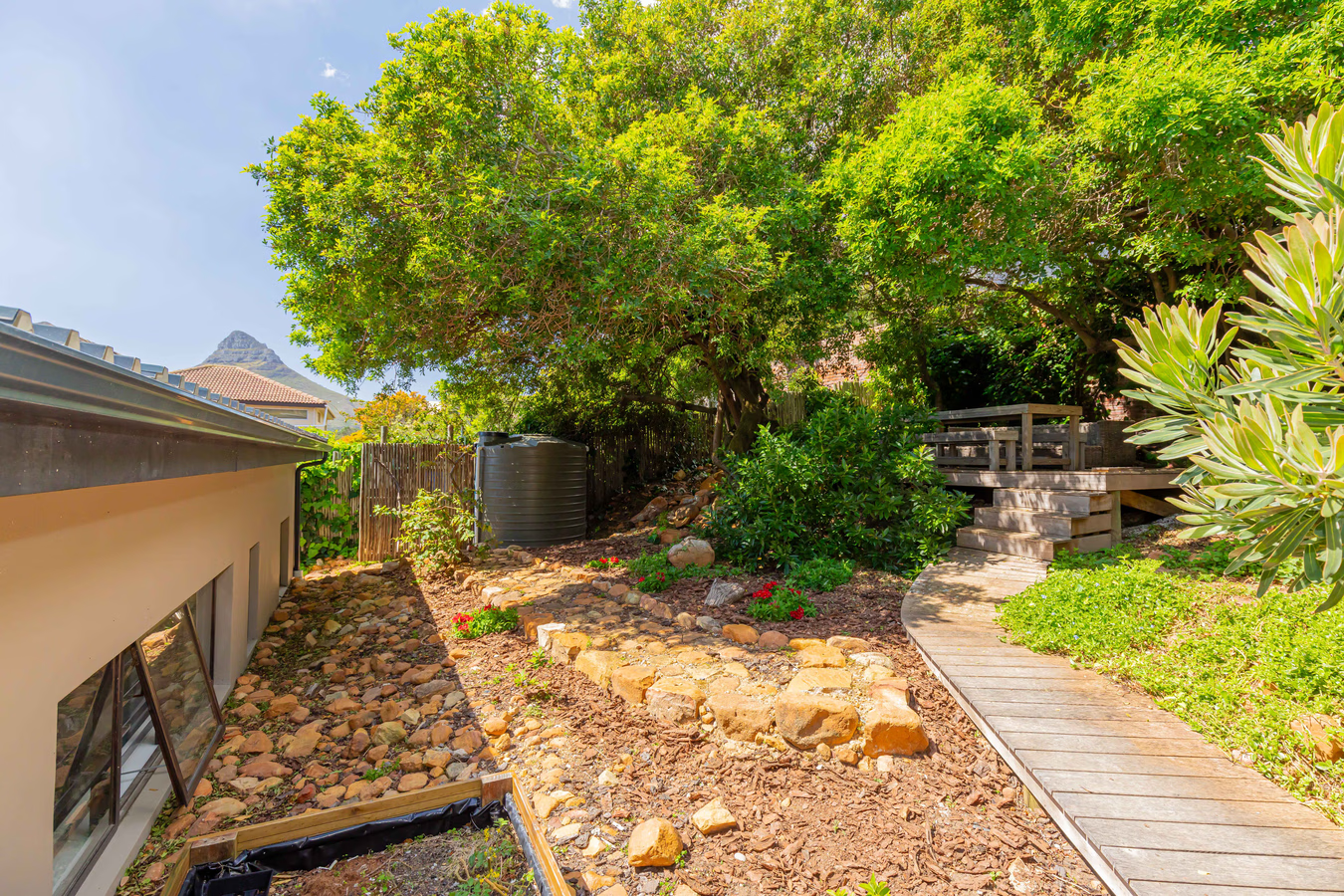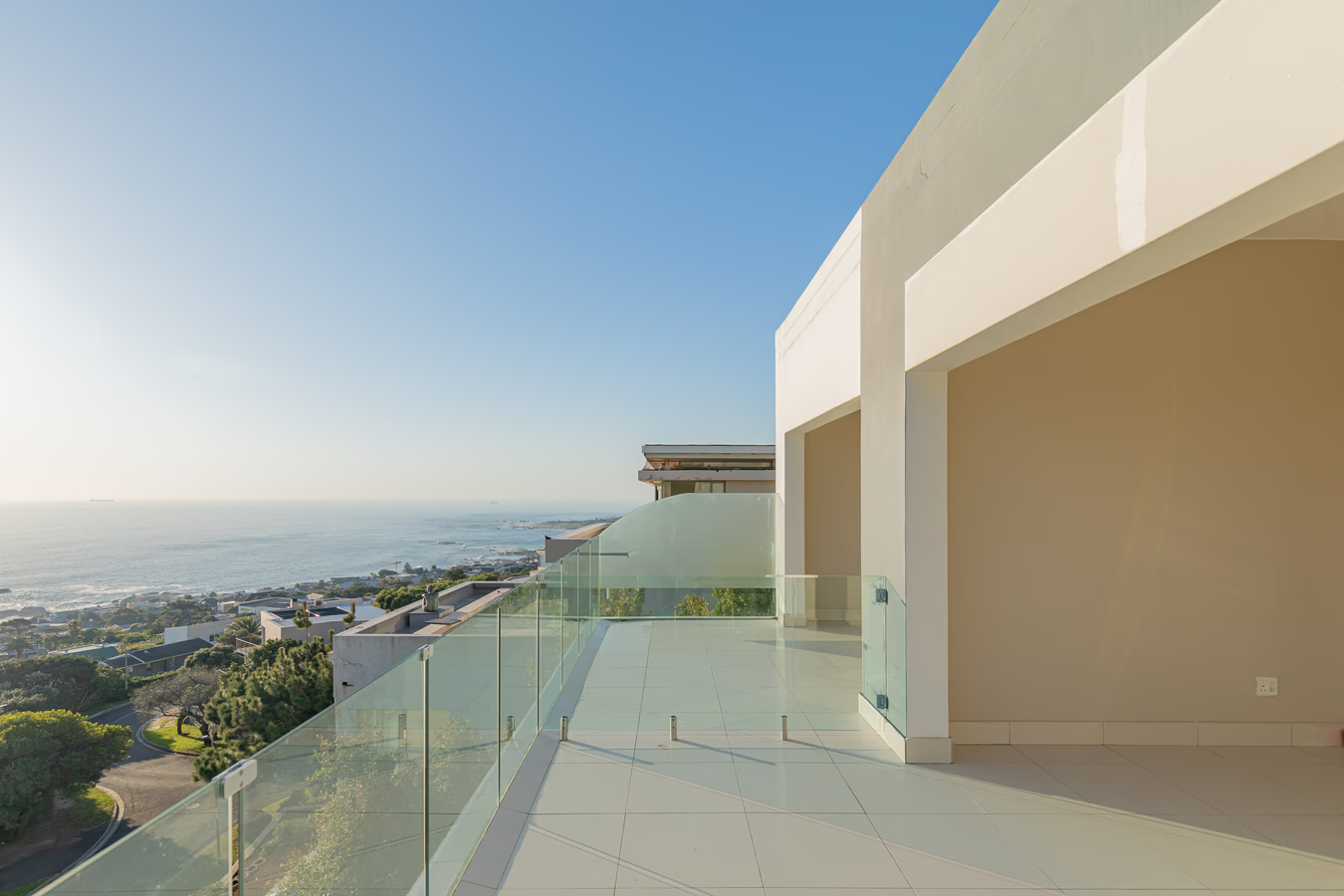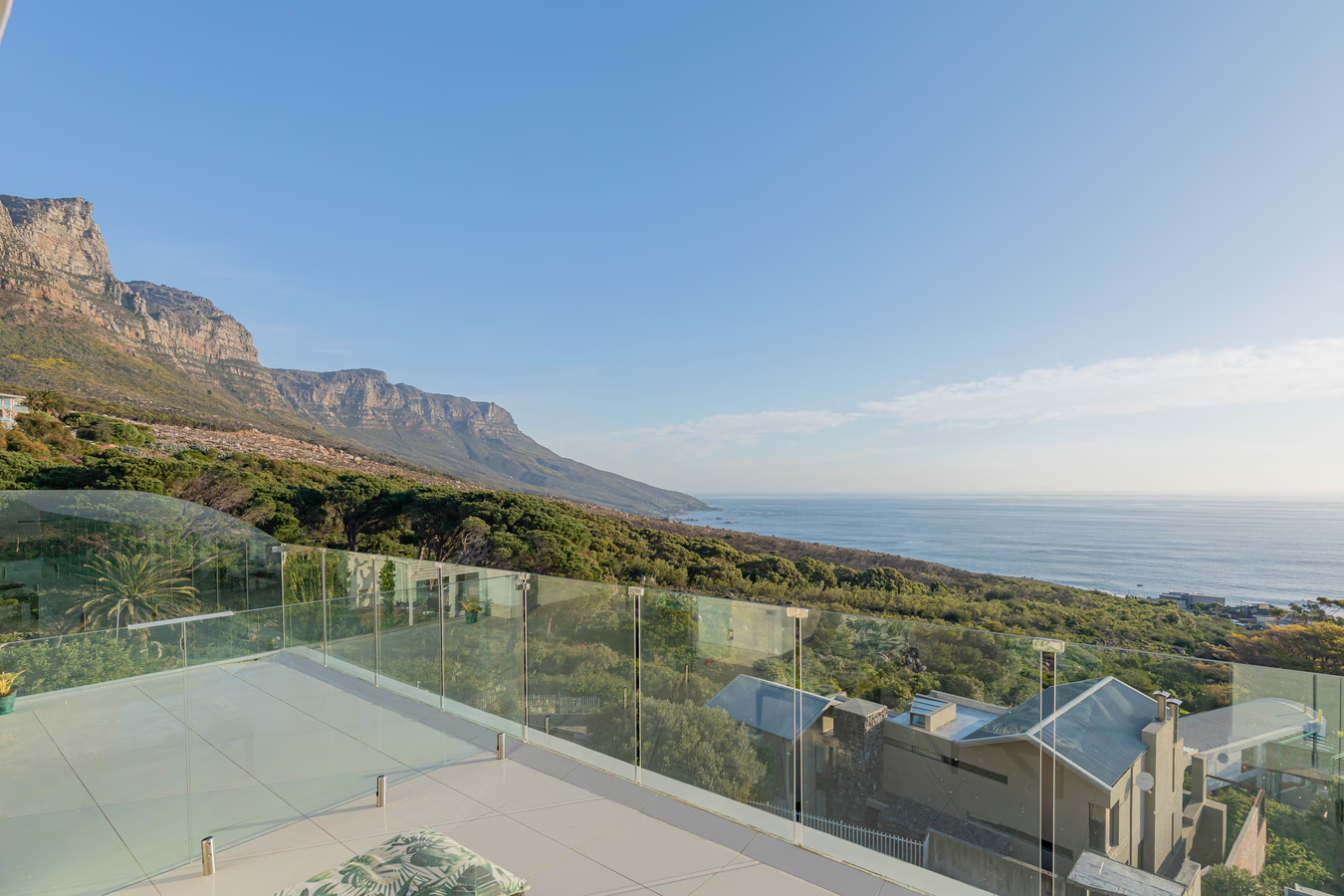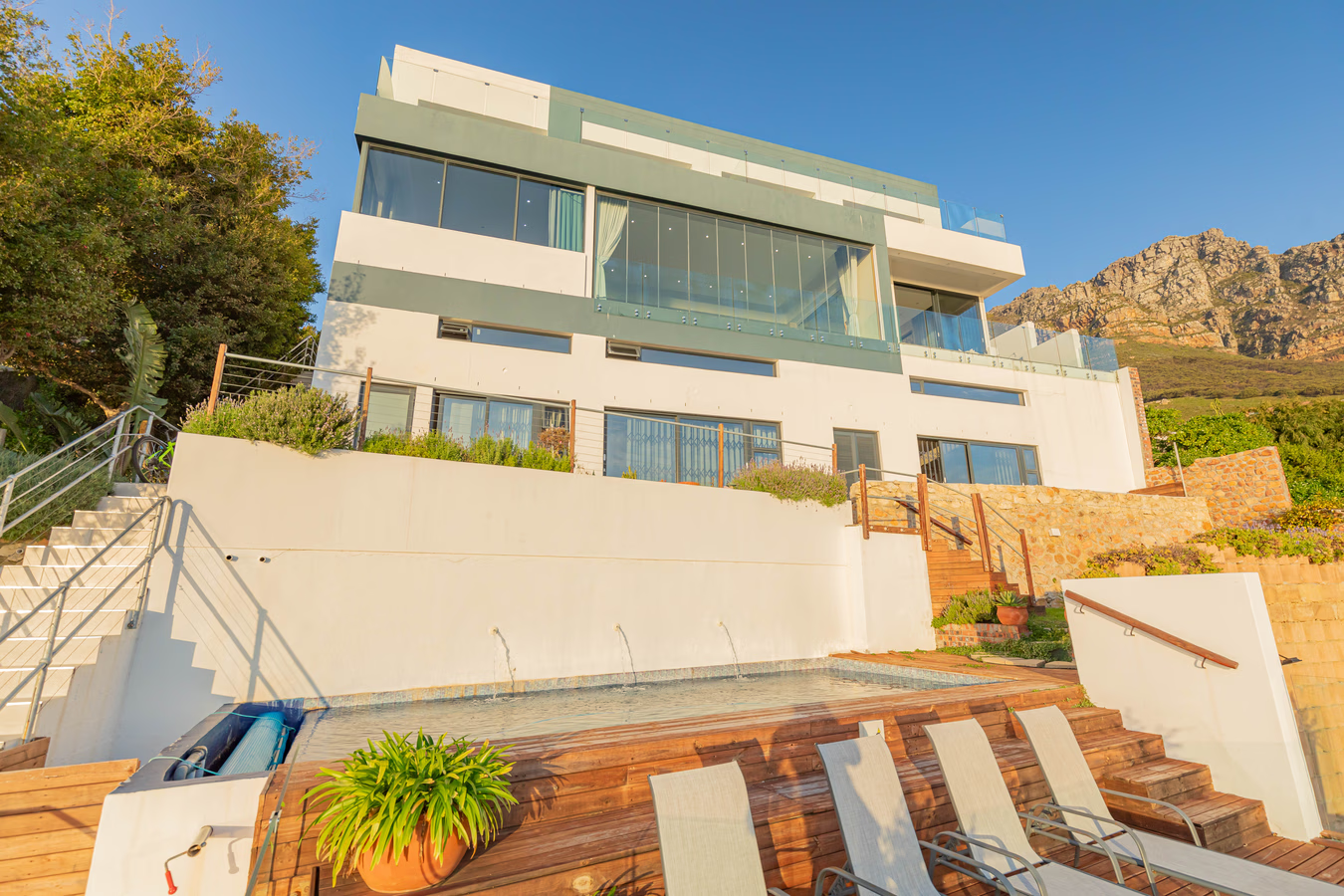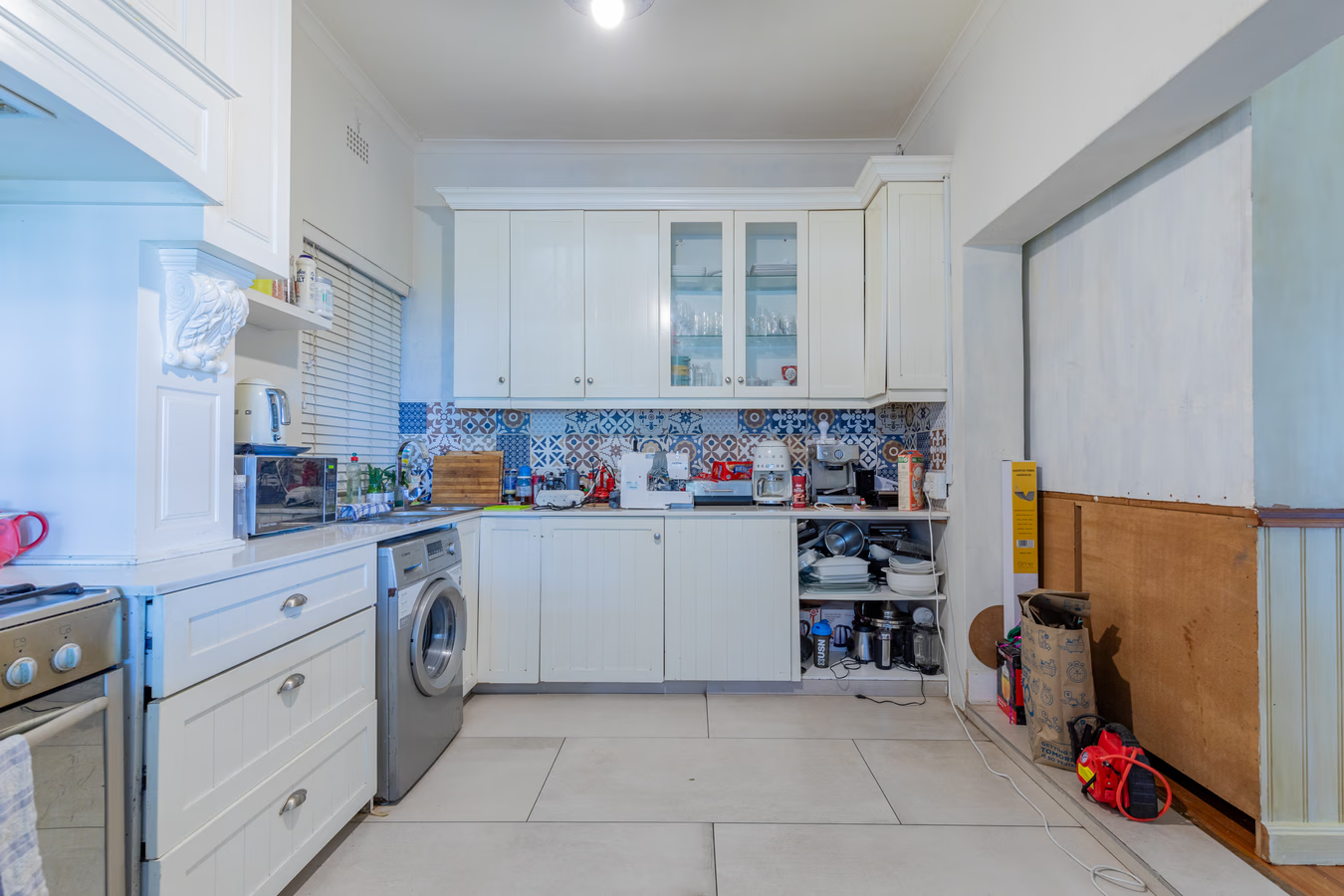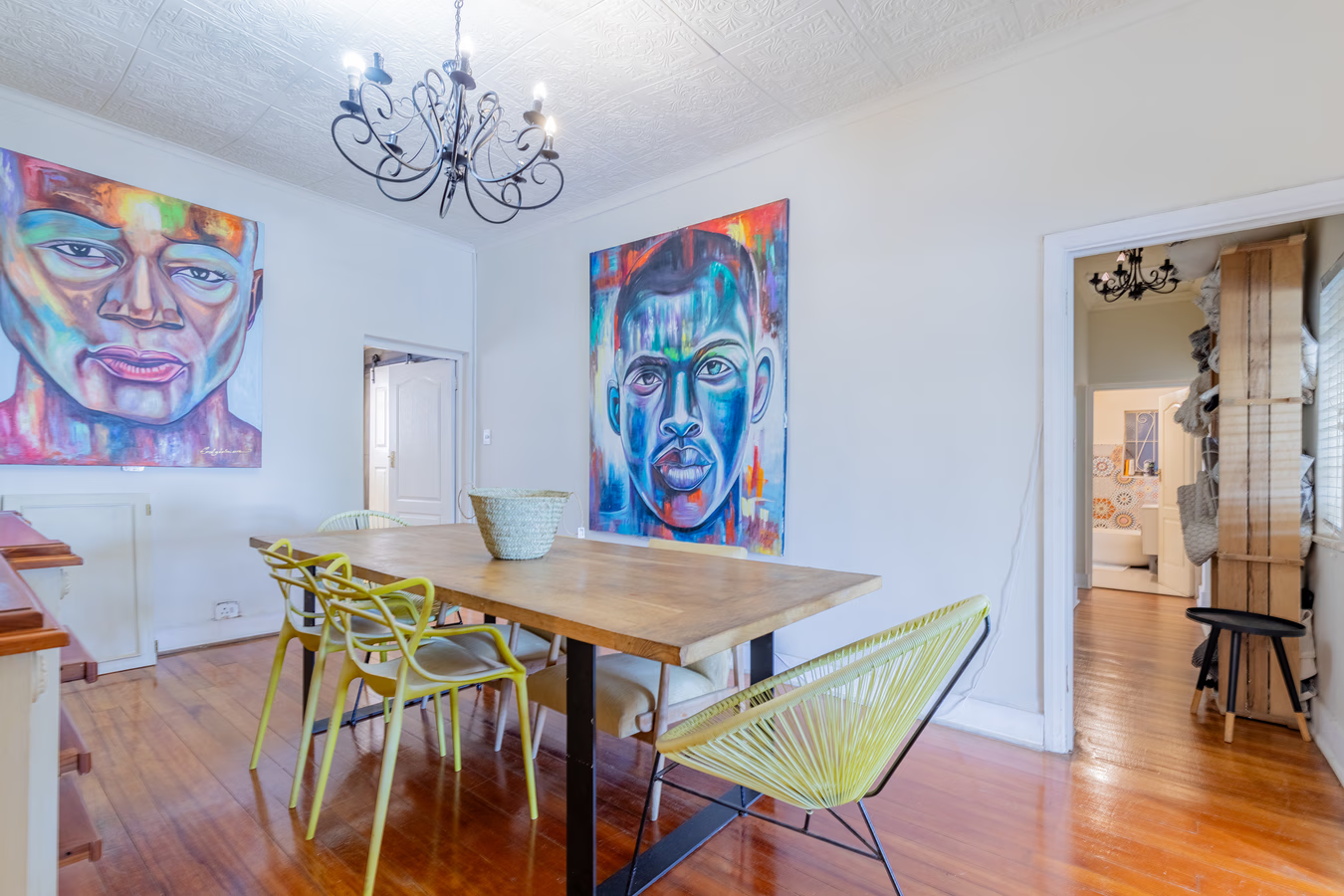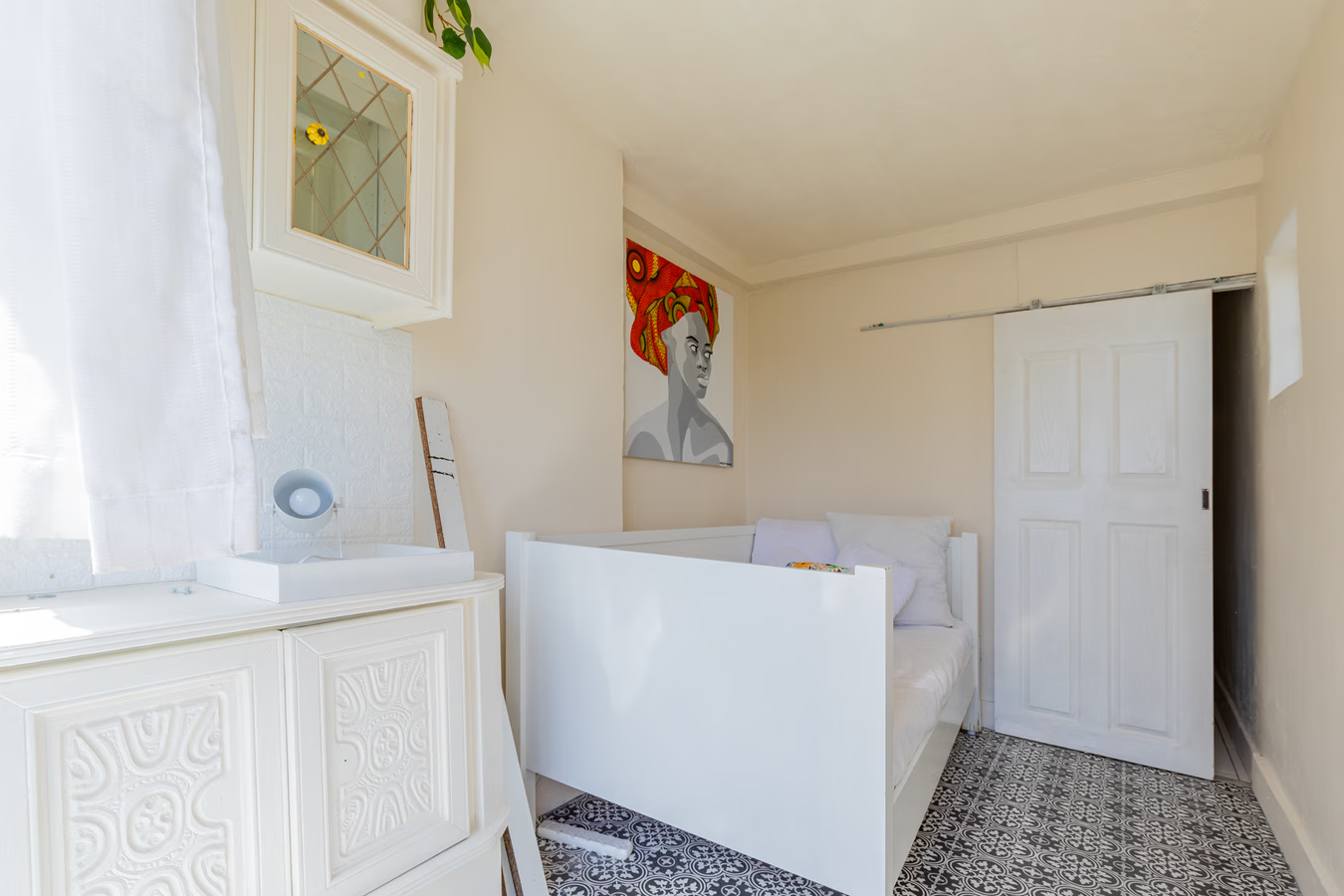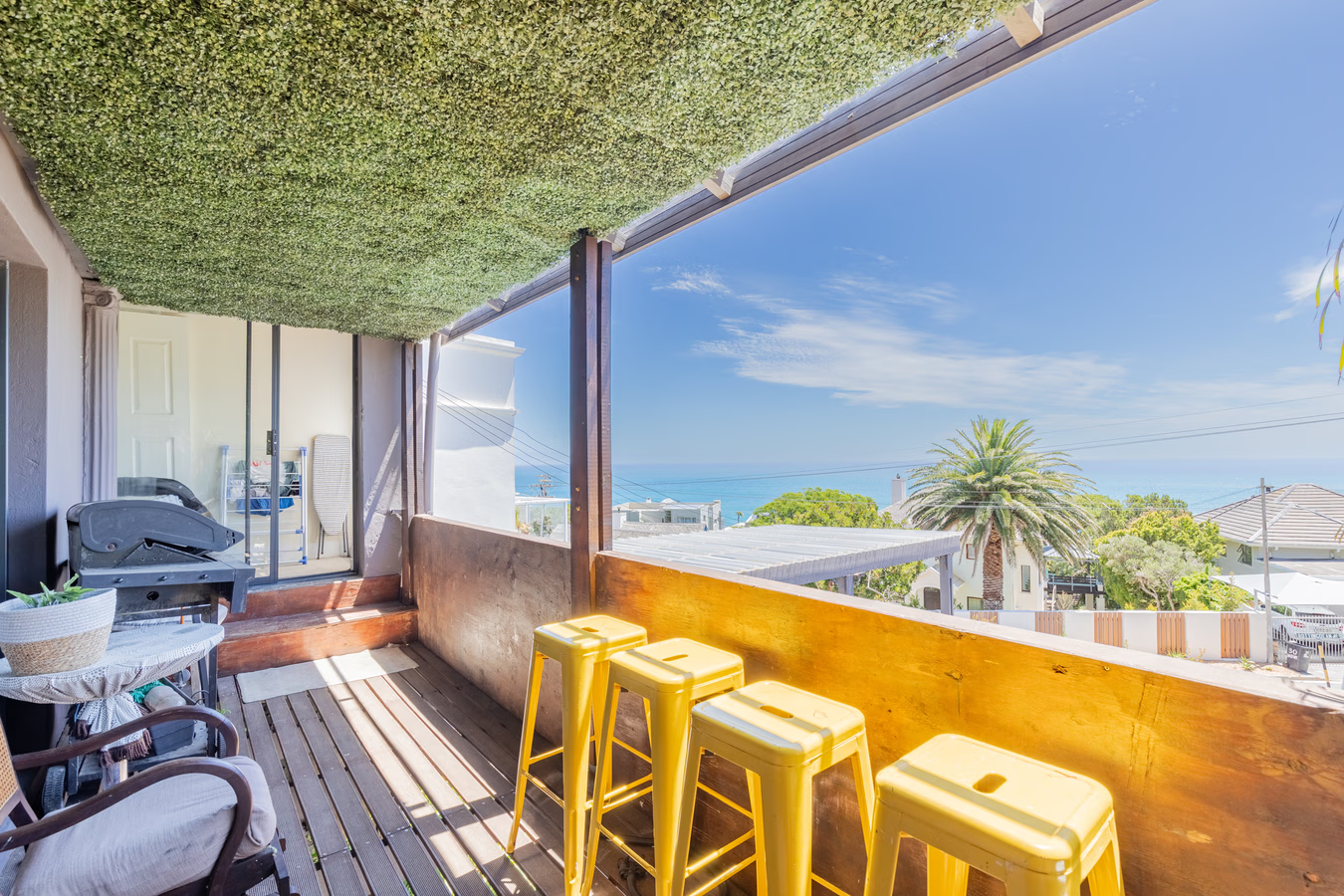Camps Bay, Cape Town
- Overview
- Attractions
- Properties
- Branches
- News
- Overview
- Attractions
- Properties
- Branches
- News
-
Historically, Camps Bay was the Cinderella of Cape Town real estate. She had potential but needed a makeover. How she became the belle of the ball is quite a tale too....
The Cape Peninsula is liberally scattered with nooks, crannies and high places, offering a range of sights, from glorious glimpses to panoramic extravaganzas, one of which is the vista of Camps Bay as one rounds Kloof Nek. Yet when Jan van Riebeeck first spied Camps Bay from this very vantage point, his response was far from lyrical. He declared it to be unfavourable for farmers and dangerous for ships. It was, after all, a wind-whipped, wild landscape, where lion, leopard, baboon and buck wandered freely. The San and the Khoi had managed to eke out a living there, but measles and smallpox had laid waste to large segments of their populations, and the afflicted had been restricted to Oudekraal.
The farmhouse Ravensteyn, owned by Johan Lodewyk Wernich, was the first house built in the area, which was once called Roodekrantz for its red soil. It was inherited by his son, Johan Jan, who had three wives, one of whom was a widow, Anna Koekemoer. When Johan died, Anna found a new beau in Fredrik Von Kamptz, who charmed his way into becoming her third husband and the new owner of Ravensteyn. The land became known as Die Baai van Von Kamptz, which ultimately became Camps Bay. The Roundhouse dates back to around 1807, and if walls could talk, there would be quite a tale there too. Lord Charles Somerset used it as a hunting lodge. It’s said to be haunted by one of its regular visitors, Dr James Barry, a woman masquerading as a man. After her death, stretch marks were discovered on her abdomen, indicating a previous pregnancy. Nothing is known of the child, but rumours of a cosy relationship between Somerset and Barry ensued. The doctor apparently proposed to turn Camps Bay into a leper colony, but Cape Town residents objected.
The year 1848 saw the construction of Lady Smith’s Pass, the precursor to Kloof Road. Now carts could ferry holidaymakers and picnickers to the area, but they all went home afterwards. Camps Bay was just not a residential reality. But one Captain William W. Glendinning saw potential and, in 1855, put 40 plots up for sale. There were no takers. Four years later, in desperation, he claimed to have found gold in the area, but no one bought land. In the latter quarter of the century, a coastal road between Sea Point and Camps Bay was constructed and named Victoria Drive in honour of Queen Victoria’s jubilee. A syndicate bought all the freehold land, subdivided plots and built roads. By the start of the 20th century, Camps Bay was linked to Cape Town by a state-of-the-art tramway.
In 1901, Camps Bay’s unofficial mayor, James Riddell Farquhar, fulfilled his personal fantasy to bring a bit of Brighton to Africa, hence the palm trees, which still line the beachfront. He was also behind the construction of the tidal pools, as well as The Rotunda, which was used for dancing, roller skating, silent movies, boxing matches and church services. Holidaymakers thronged to Camps Bay on weekends and holidays. It was the place to be seen. Even local ‘ladies’ of questionable character distributed their business cards as they rode along the beachfront in carriages hired by their madams. Yet Camps Bay remained a summer holiday resort. Capetonians lived elsewhere on the Peninsula. Around 1930, the syndicate involved in the tramways and the suburb planning went bankrupt, but Camps Bay was soon to receive what was probably its biggest shot in the arm in the form of Mr Isadore Cohen. In 1936, he bought up the remaining assets of the syndicate, and virtually all of the land in Camps Bay. He organised a complete civil infrastructure, including roads, water and electricity, then offered plots and houses for a reasonable monthly sum – no deposit was required – and after 10 to 15 years, residents would acquire ownership. It was too good to refuse, and Camps Bay was on the road to achieving the suburban cachet that was to define its future.
In the 1950’s, the owners of the Rotunda, the Satz brothers, planned to build a 7 story block of flats on the site. The residents objected as this would impede there view, a height restriction was imposed on all buildings, of no more than 3 storeys; the Rotunda was saved and declared a national monument in 1974. The older part of the complex built in the 1950,s by SA Breweries, was demolished and the Bay Hotel opened in 1997.
It was in the late ’70s and early ’80s that the demand for Camps Bay real estate began to skyrocket. “Around that time, there was an exodus of Germans from Namibia and they pretty much put Camps Bay on the map. It was conveniently close to the German School, and they were drawn by the sea views and the rare beauty of the area. Over the next few years, these newer residents received visitors, who would pop into the real estate offices out of curiosity, then get on the plane back to Europe, having bought a Camps Bay property.”
The large granite boulders that are a feature of Camps Bay are part of a huge subsurface rock mass whose limits lie far beyond the Peninsula. Formerly molten, it fractured as it cooled into the large blocks so visible along the shore. Over the aeons the Camps Bay wind has scoured the granite with the hard quartz grains until the southeast faces of the boulders at the north end of Camps Bay beach have become honeycombed, polished and grooved by the action of the wind and the sand. The sand itself is soft and white because of the predominantly quartzitic rocks of the Table Mountain (in Cape Town) Group. The action of the waves can be seen in the granite headlands near Camps Bay which were cut by their force when the shoreline was 6 metres higher than it is at present.
With the redevelopment in Camps Bay, a shopping complex was constructed, sports facilities upgraded, the old Camps Bay power station was converted into the Theatre on the Bay, and parking and beach facilities upgraded to cope with the influx of people. Camps Bay has its own police station as well as a NSRI base. This ensures the safety of visitors and residents alike. The Main road along the beachfront is lined with restaurants, bars and cafes to suit all tastes.
The Camps Bay Community
The Camps Bay community, which had largely comprised local families who’d lived there for generations, now became something of a hybrid – a trend which continued after the general elections in 1994 – when growing international interest in Camps Bay led to a price boom that hasn’t yet abated. “The only ‘low’ point was an 18-month plateau after South Africa lost the bid for the Olympics,” adds Marion Taylor – a local Greeff Properties agent. Residents live in a holiday resort that abounds with natural, rugged beauty, yet simultaneously oozes sophistication. It’s close to the city with all its amenities. And then there’s the après beach action! The glamorous beachfront Strip attracts both international and local über blingsters to a selection of restaurants and bars that offer a wide variety of fine dining options and sidewalk sundowners.
A far cry indeed from the early ’80s, when the Pink Geranium Restaurant and a Wimpy were the only eateries and Camps Bay wasn’t really the place to hang out. “You lived there, but you hung out in Clifton”. Today, Camps Bay is home to some 3 500 families who enjoy the easy access to excellent schools in the City Bowl and the suburb proper. Aside from its good reputation, Camps Bay High has to be the school with the finest views in the world. The windows were once painted to prevent the children from gazing at the waves and bunking off to go surfing. Former pupils remember the headmaster keeping a pair of binoculars to scan the beach for truant kids. Tempting indeed, but then, beaches don’t get much better than this. In 2008, Camps Bay Beach was awarded International Blue Flag status. Additionally, the majestic backdrop of Lion's Head and The Twelve Apostles make this home to some of the most coveted real estate on the Atlantic Seaboard. “The state-of-the-art, larger villas are in greatest demand, but they’re in short supply, so when one does come onto the market, sellers are naming their prices,” says Marion Taylor, adding that a house that recently came onto the market for R26-million ultimately fetched R27.5-million. Those wanting to break into the market are looking at a starting price of R2.4-million for an apartment. Townhouses begin at R3.5-million, and the cheapest house sells for about R5-million.
Properties in Camps Bay
There are about 5000 households in Camps Bay with properties ranging from apartments, cottages, bungalows on the beach, older type homes to modern architectural feats built against the slopes of the Twelve Apostles. The area has a shul and numerous churches as well as pre schools, a junior school and a high school. Properties in Camps Bay are popular with locals and many homes are owned by foreigners. Only a 10 minute drive to the waterfront and CBD (link: http://www.greeff.co.za/properties-for-sale-city-bowl/0-0-0-1-c6greeffcity3) and 25 minutes to the airport, make properties in the area very sought after. With views over the white sandy beach and ocean, walks along the mountain, Camps Bay has it all.
Camps Bay is the idyllic dormitory to the city with great bathing and tanning on the beautiful white sandy beaches. Take a walk along the beachfront or a hike on the mountain for a view that will take your breath away. Camps Bay provides the most beautiful sunsets and views to the west.
-
Areas near Camps Bay, Cape TownAdriaanse 1 Airport Industria 8 Athlone 1 Bakoven 1 Bantry Bay 1 Belthorn Estate 1 Bishopscourt 2 Bo Kaap 15 Cape Town City Centre 104 Claremont 8 Claremont Upper 15 Constantia 10 De Waterkant 11 Diep River 2 Epping Industrial 7 Fairways 1 Fisantekraal Industrial 4 Foreshore 18 Fresnaye 1 Gardens 12 Grassy Park 5 Green Point 22 Heathfield 3 Higgovale 2 Kalk Bay 1 Kenilworth 9 Kenilworth Upper 9 Lansdowne 5 Lotus River 1 Maitland 2 Mouille Point 2 Mowbray 9 Muizenberg 3 Ndabeni 3 Newlands 12 Observatory 16 Oranjezicht 4 Ottery 5 Ottery East 1 Paarden Eiland 5 Pinelands 9 Plumstead 4 Retreat 2 Rondebosch 18 Rondebosch Village 3 Rosebank 2 Rylands 1 Salt River 17 Sea Point 44 Silvertree Estate 1 Southfield 4 Surrey Estate 1 Sybrand Park 1 Tamboerskloof 2 Thornton 2 Three Anchor Bay 2 Tokai 1 University Estate 1 Vredehoek 3 Walmer Estate 2 Woodstock 44 Wynberg 6 Wynberg Upper 1 Zonnebloem 2 Zwaanswyk 8
-
Properties in Camps Bay
15R55,000 pm2 Bedroom Apartment To Let in Camps Bay2 Bed2 Bath31R8,999,9993 Bedroom Apartment For Sale in Camps Bay3 Bed2 Bath1 Parking125m²27R29,000,0004 Bedroom House For Sale in Camps Bay4 Bed4 Bath2 Parking278m²19R42,950,00011 Bedroom Villa For Sale in Camps Bay11 Bed11 Bath2 Parking32R19,900,00012 Bedroom House For Sale in Camps Bay12 Bed12 Bath2 Parking320m²No listings found
-
Branches
-
Camps Bay in the news
 Greeff Christie's International Real Estate is expanding further into the Cape...
Greeff Christie's International Real Estate is expanding further into the Cape... Two decades ago, real estate agent Mike Greeff started Greeff Properties in the...
Two decades ago, real estate agent Mike Greeff started Greeff Properties in the...














































































